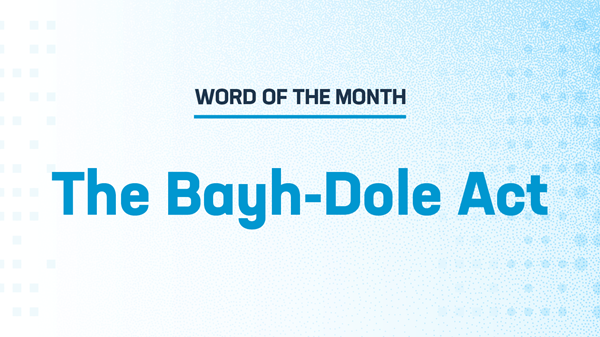The United States research and development (R&D) ecosystem has historically been supported by a policy and regulatory framework that has led to unprecedented levels of collaboration and innovation. In 2021 alone, brand name biopharmaceutical companies invested over $100 billion into R&D and there are more than 8,000 medicines in development today. Much of this success can be attributed to the Bayh-Dole Act.
Formally known as the University and Small Business Patent Procedures Act, when passed by Congress in 1980 the Bayh-Dole Act fundamentally changed how federally funded research gets turned into commercialized products. Prior to its passage, inventions arising from government-funded research often languished in bureaucratic red tape, rarely seeing the light of day. However, Bayh-Dole's groundbreaking provisions allowed researchers receiving federal funds to patent their inventions and license them to private companies so they could continue to research and develop them into products that benefit the public.
Without the Bayh-Dole Act, and significant investments from the private sector, any knowledge gained through government-supported research would generate interesting ideas but very few new products. Before Bayh-Dole, not a single drug built on government-funded research had been further developed. Since the legislation’s passage more than 40 years ago, over 200 new medications and vaccines have been created through these partnerships. Further, this collaboration has contributed nearly $2 trillion to our economy and supported 6.5 million jobs.
Thanks to public-private collaboration and licensing, we've witnessed the development of groundbreaking treatments and cures for conditions such as cancer, rare diseases and infectious diseases.
The Bayh-Dole Act has been an invaluable catalyst for biopharmaceutical innovation. By empowering academic institutions and industry to take ownership of their research, fostering collaboration, and streamlining the process of bringing discoveries to market, this legislation has played a central role in shaping the biopharmaceutical landscape we know today.
Learn more about Bayh-Dole here.



